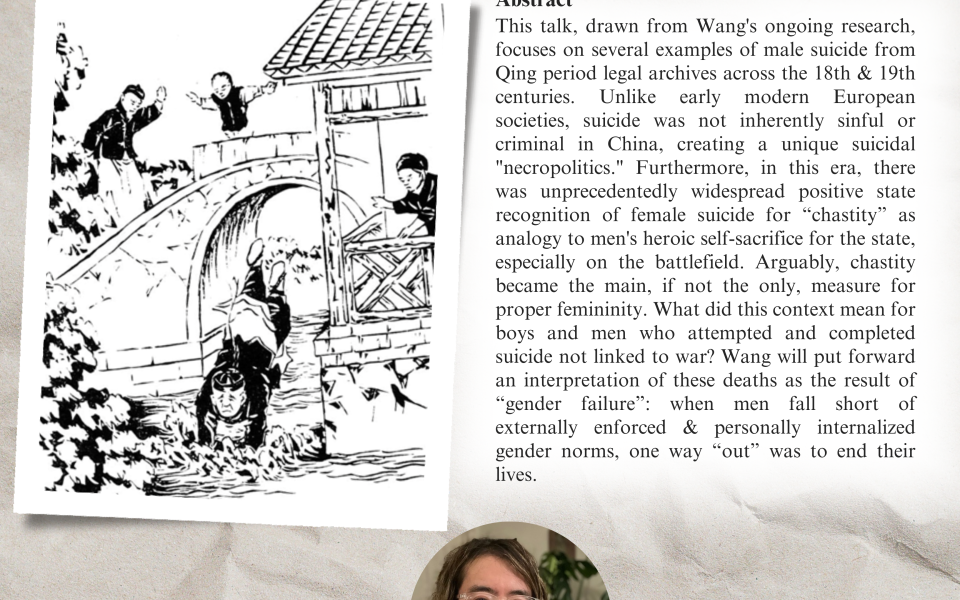Abstract
This talk, drawn from Wang's ongoing research, focuses on several examples of male suicide from Qing period legal archives across the 18th & 19th centuries. Unlike early modern European societies, suicide was not inherently sinful or criminal in China, creating a unique suicidal "necropolitics." Furthermore, in this era, there was unprecedentedly widespread positive state recognition of female suicide for “chastity” as analogy to men's heroic self-sacrifice for the state, especially on the battlefield. Arguably, chastity became the main, if not the only, measure for proper femininity. What did this context mean for boys and men who attempted and completed suicide not linked to war? Wang will put forward an interpretation of these deaths as the result of “gender failure”: when men fall short of externally enforced & personally internalized gender norms, one way “out” was to end their lives.
Bio
Yvon Wang is associate professor in the Department of History at the University of Toronto. Their book about explicit sexual representations in Chinese print commodities, Reinventing Licentiousness: Pornography and Modern China (2021), is available via Cornell University Press. A co-edited volume with Xu Youwei (Shanghai U.), Everyday Lives in China's Cold War Military-Industrial Complex: Voices from the Shanghai Small Third Front, 1964–1988, was published by Palgrave Macmillan in 2021. Other research interests include social history, gender and sexuality, material culture, food, and popular media--in late imperial and twentieth-century China as well as in a broader world-historical perspective.
